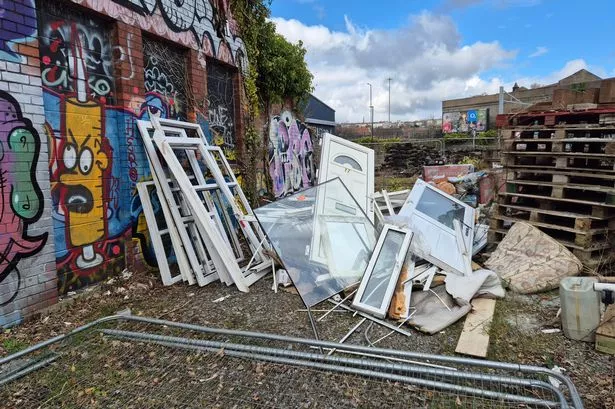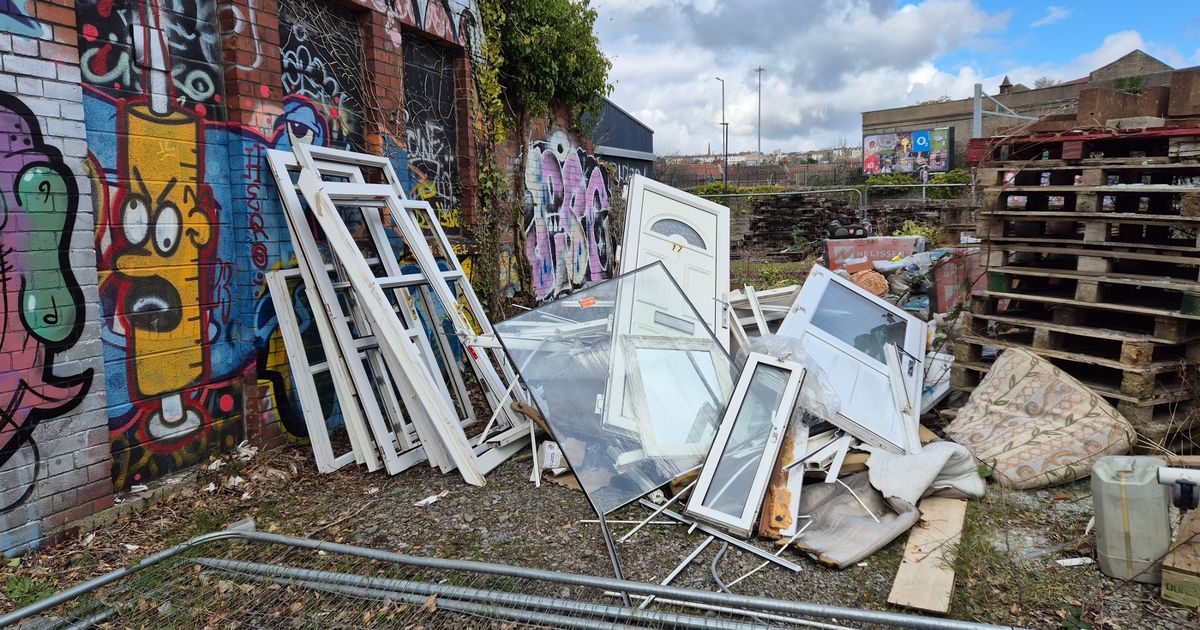Over 7,000 incidents were reported and removed in the last three months of 2024 Fly-tipping near Cumberland Road(Image: Alex Seabrook)
Fly-tipping near Cumberland Road(Image: Alex Seabrook)
A huge rise in fly-tipping in Bristol has been blamed on the cost of living crisis starting to ease off. As inflation has fallen and salaries have gone up since the peak of the crisis, more people are feeling comfortable enough to buy expensive items like new sofas, dumping their old ones.
Between October and December last year, 7,781 fly-tipping incidents were reported and removed according to Bristol City Council figures. This is almost 1,900 more incidents than the same period in 2023.
Waste bosses at the council were pressed for answers by councillors on the environment policy committee on Thursday, April 3. As well as inflation cooling off, they said extra resources put into clearing up fly-tipping was another reason for the spike in the figures.
Ken Lawson, head of waste, said: “We removed more because we put more resources in to try and clear a backlog that had built up, and that’s why there was a big spike. We think that the cost of living suppressed some purchasing, and now with inflation dropping and wages going up a bit, we think we saw an uptick in expenditure towards the end of last year.
“So people were potentially fly-tipping more because potentially they felt better, they felt a little bit better off in comparison to where they had been. We don’t have any data on that, but nationally and certainly locally, when the cost of living crisis was fully on, there was a 20 per cent drop in fly-tipping. Towards the end of last year it started ticking up again.”
Inflation in the UK at the moment is 2.8 per cent, according to the Office for National Statistics. The rate of how quickly the cost of living is increasing, measured by the Consumer Prices Index, peaked at 11.1 per cent in October 2022.
Another factor in fly-tipping is clothes banks and commercial waste bins, which often end up with people dumping their rubbish next to them. Recently the council has removed lots of commercial bins from the streets, to try and tackle this problem.
Sign up to receive daily news updates and breaking news alerts straight to your inbox for free here.
Labour Councillor Tom Renhard said: “Opposite the Inn on the Green [in Horfield ] there was a set of clothes banks. Repeatedly there was fly-tipping, which would be cleared, and then more fly-tipping would appear. It’s been like that since last summer.
“About four weeks ago those clothes banks were removed after repeated visits to deal with the fly-tipping. You wouldn’t have had to do so many trips if those clothes banks had been removed far earlier.”
Councils are responsible for clearing up fly-tipping on public land, while on private land it’s normally the landowner who’s responsible. Council bosses in Bristol are considering switching to collecting black bins every three weeks instead of fortnightly, sparking fears of fly-tipping becoming even worse of a problem as some households throw away so much rubbish.
